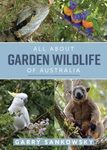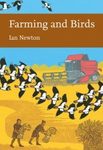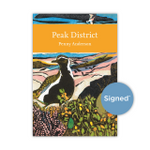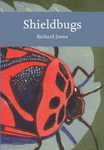![Orchard Orchard]()
Click to have a closer look
About this book
Customer reviews
Biography
Related titles
About this book
Orchards are so rich in biodiversity, they eclipse most recognised conservation areas. Spend a year in one orchard, and celebrate this imperilled, overlooked abundance of life.
As rotting windfall apples and frost lie thick on the ground, and the oldest of fruit trees bend under the weight of mistletoe, the orchard begins a new year.
A chattering blanket of starlings descend on the bounty of last year's fruit, joining bramblings, blackbirds, angry-faced waxwings and intoxicated fieldfares who, drunk on fermented berries, fight one another over their rotting real estate. Even in winter, the orchard is a place of bounty, competition and continuous surprise, most of whose secrets lie hidden deep below the surface.
As the seasons turn, a wealth of animals and plants are revealed: Bumble and solitary bees apartment-hunting in April; spotted flycatchers migrating in May; redstarts, hedgehogs and owls nesting in June; an explosion of life in the summer and the harvest and homespun cider-making in the autumn. And all throughout the year, the orchard's human and animal inhabitants work together, creating one of the richest ecosystems left in Britain.
Their ancient tradition of collaboration between people and nature makes orchards a source of hope for the future. If we can bring new life to Britain's orchards – favouring organic methods and harvesting with a balanced ecosystem in mind – not only wildlife but people will have a far richer Britain to profit from in the centuries to come.
Customer Reviews (1)
-
Brilliantly insight into the value orchards
By
Nigel
25 Nov 2020
Written for Hardback
Orchards have been a traditional component of the British landscape for many centuries and their value for wildlife has long been underestimated. This passionate eulogy observes over a single year the abundant wildlife in one of the few traditional orchards left in Britain. It is a brilliantly written and informative insight into the ecological niche traditional orchards can provide and the benefit they can have for the larger ecosystems around them. Unfortunately, as in so much of the UK's agricultural landscape, modern orchards are often deserts of biodiversity: depending on expensive machinery, pesticide controls and extensive pruning to keep competitive. However, the authors make an excellent case for working with nature rather than against it, to control pests and maintain productivity that is both commercially viable and provides a haven for nature. I enjoyed this book immensely and it has inspired me to plant a couple of apple trees in my tiny back garden.
4 of 4 found this helpful
-
Was this helpful to you? Yes No
Biography
Benedict Macdonald is a conservation writer, field director in wildlife television and a keen naturalist; passionate about restoring Britain's wildlife. He is a long-time writer for Birdwatching magazine, as well as a contributor to the RSPB Nature’s Home and BBC Wildlife. He has been fortunate to work on TV series for the BBC and Netflix – most notably the grasslands and jungles programmes of Sir David Attenborough's conservation series Our Planet, broadcast worldwide on Netflix in April 2019.
Nicholas Gates is a naturalist, producer, vlogger and writer based in Bristol. He has a passion for conservation and rewilding, and for inspiring people to care for the natural world. He studied Natural Sciences at Cambridge and when he’s not taking photos, he can be found working in his urban wildlife reserve garden, or with his chickens.
Nature Writing
By: Benedict Macdonald(Author), Nicholas Gates(Author)
278 pages, 16 plates with colour photos; 1 b/w map
"Enchanting"
– Daily Mail
"Vivid [and] full of unexpected revelations [...] Orchard has much to offer in its observations of wildlife"
– John Carey, Sunday Times
"A wonderful new book from Benedict Macdonald and Nicholas Gates, veterans of the BBC's Springwatch series [...] moves lyrically and vividly through one calendar year in an old Herefordshire orchard [...] Particularly moving"
– New Statesman
"From spores to sparrowhawks, there is never a dull moment. Lyrically written, Orchard is a love-letter to its jumbled "magical chaos" and a shining example of the things that can be achieved when humans come to work in balance and in harmony with nature"
– BBC Wildlife
"From slug-hunting toads and snuffling hedgehogs to percussion-playing spiders, woodpecker architects and zombie hoverflies, this wonderful book weaves together fascinating stories of the wildlife that lives in an old organic orchard [...] Excellent [...] I would recommend Orchard wholeheartedly"
– Kathy Bishop, The Seasonal Table, Countryfile magazine
"This book looks at an ancient English orchard throughout the course of a year, focusing on the wide range of wildlife that it supports [...] writing with a lyrical richness that beautifully evokes this unique setting [...] The result is a book that can be enjoyed on a lot of different levels from professional conservationists, to the most casual of everyday birdwatchers. Passionate and moving, this is highly recommended"
– Birdwatch magazine
"A rich and textured account of a year in this neglected habitat"
– Stephen Moss
"Enjoy this precious habitat and all its glories via this coffee-table worthy book that offers food for thought"
– RSPB magazine
"This beautiful exploration of natural history is an elegy for a disappearing way of life [...] captivating"
– The Garden magazine



































